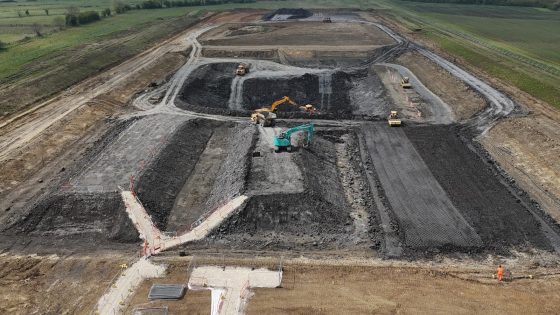UK 30% critical minerals by 2035: project and permitting signals for miners
Reviewed by Joe Ashwell

First reported on MINING.com
30 Second Briefing
The UK government plans to meet 30% of domestic demand for critical minerals such as lithium, cobalt and rare earth elements from UK sources by 2035 under a new 10‑year strategy. The plan mirrors US, Canadian and EU policies aimed at reducing reliance on China‑dominated supply chains for battery, wind turbine and electronics materials. For miners and processors, it signals stronger backing for domestic exploration, recycling capacity and mid‑stream refining projects, with permitting, ESG compliance and grid access likely to be key constraints.
Technical Brief
- For other jurisdictions, similar national strategies are increasingly tying mine approvals to downstream refining and recycling capacity.
Our Take
A 30% domestic-supply target by 2035 implies the UK will need multiple new extraction, processing and recycling projects permitted within roughly a 10‑year window, which in practice pushes early-stage critical minerals projects in the UK up the priority list for planning and grid-connection capacity.
With China explicitly referenced alongside the US, Canada and the EU, this strategy signals that UK projects supplying critical minerals are likely to be steered towards alignment with North American and European supply chains, which can shape offtake terms and ESG requirements for UK-based operators.
Across our 10 Policy stories, few have set such a quantified domestic-supply share over a defined 10‑year strategy period, so this UK target will probably be used as a benchmark when other European states frame their own critical minerals policies and national project pipelines.
Prepared by collating external sources, AI-assisted tools, and Geomechanics.io’s proprietary mining database, then reviewed for technical accuracy & edited by our geotechnical team.
Related Articles
Related Industries & Products
Mining
Geotechnical software solutions for mining operations including CMRR analysis, hydrogeological testing, and data management.
CMRR-io
Streamline coal mine roof stability assessments with our cloud-based CMRR software featuring automated calculations, multi-scenario analysis, and collaborative workflows.
HYDROGEO-io
Comprehensive hydrogeological testing platform for managing, analysing, and reporting on packer tests, lugeon values, and hydraulic conductivity assessments.
GEODB-io
Centralised geotechnical data management solution for storing, accessing, and analysing all your site investigation and material testing data.


